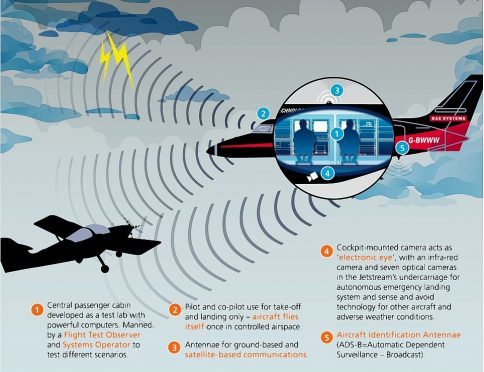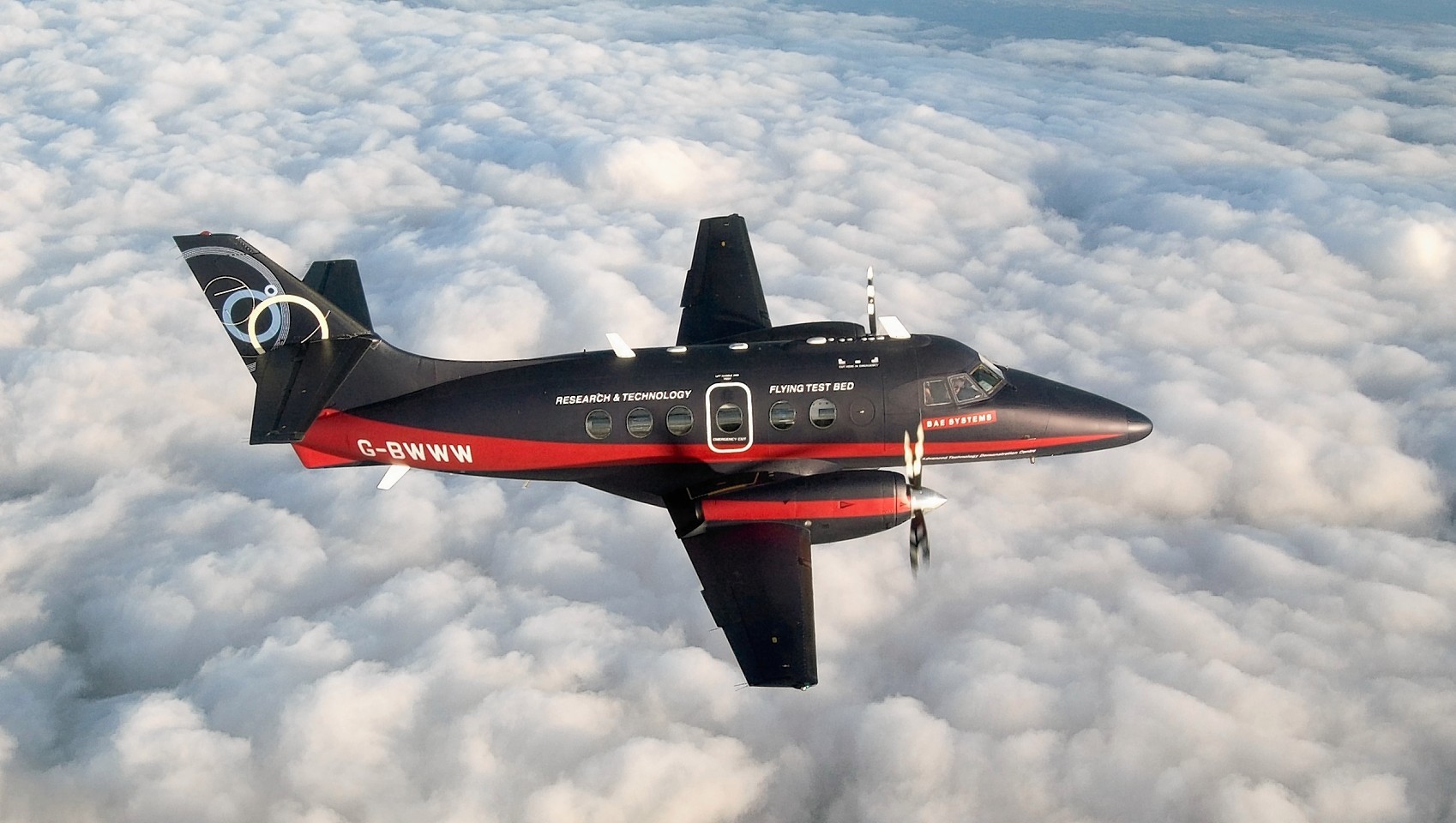Driverless cars are ever closer to becoming a reality – but unmanned passenger planes could beat them to it.
Test flights to and from Inverness are already happening.
Aerospace giant BAE Systems has begun tests involving a Jetstream 31 plane between the Highland capital and Warton in Lancashire. For now, it “flies itself” but has human backup aboard just in case.
The missions are conducted by the company’s military aircraft facility at Warton and financed by BAE Systems at a cost of £400,000. The flights follow a research programme that ran between 2008 and 2013.
In a series of 17 flights, its engineers aim to prove it can be done safely controlled via a satellite link.
It hopes that “in the near future,” unmanned aircraft will be cleared for commercial and military use as an “aid” to the existing crew.
Ninety-minute test flights involve a team of two onboard engineers who, together with air traffic control experts, continually monitor the performance of the systems.
Flying the 300 miles at 15,000 feet, a pilot and co-pilot are in control for take-off and landing. Once airborne and in controlled airspace, the Jetstream flies itself.
On the ground a flight test observer and unmanned air vehicle commander monitor the flight via satellite communications.
The plane has an aircraft identification antennae that detects other aircraft’s transponder signals.
It also has a cockpit-mounted camera acting as an “electronic eye” linked to the aircraft’s computer systems and enables the Jetstream to gauge potential hazards.
It can recognise cloud types and, if necessary, plot a course that allows evasive action from challenging weather conditions.
Maureen Mccue of BAE Systems said: “The trials are an exciting time and will give us technology options that could be applied to our own manned and unmanned aircraft as well potentially enabling us to take some new unmanned aircraft technologies to market.”
BAE Systems has developed a portfolio of unmanned air capabilities over the past 20 years.

